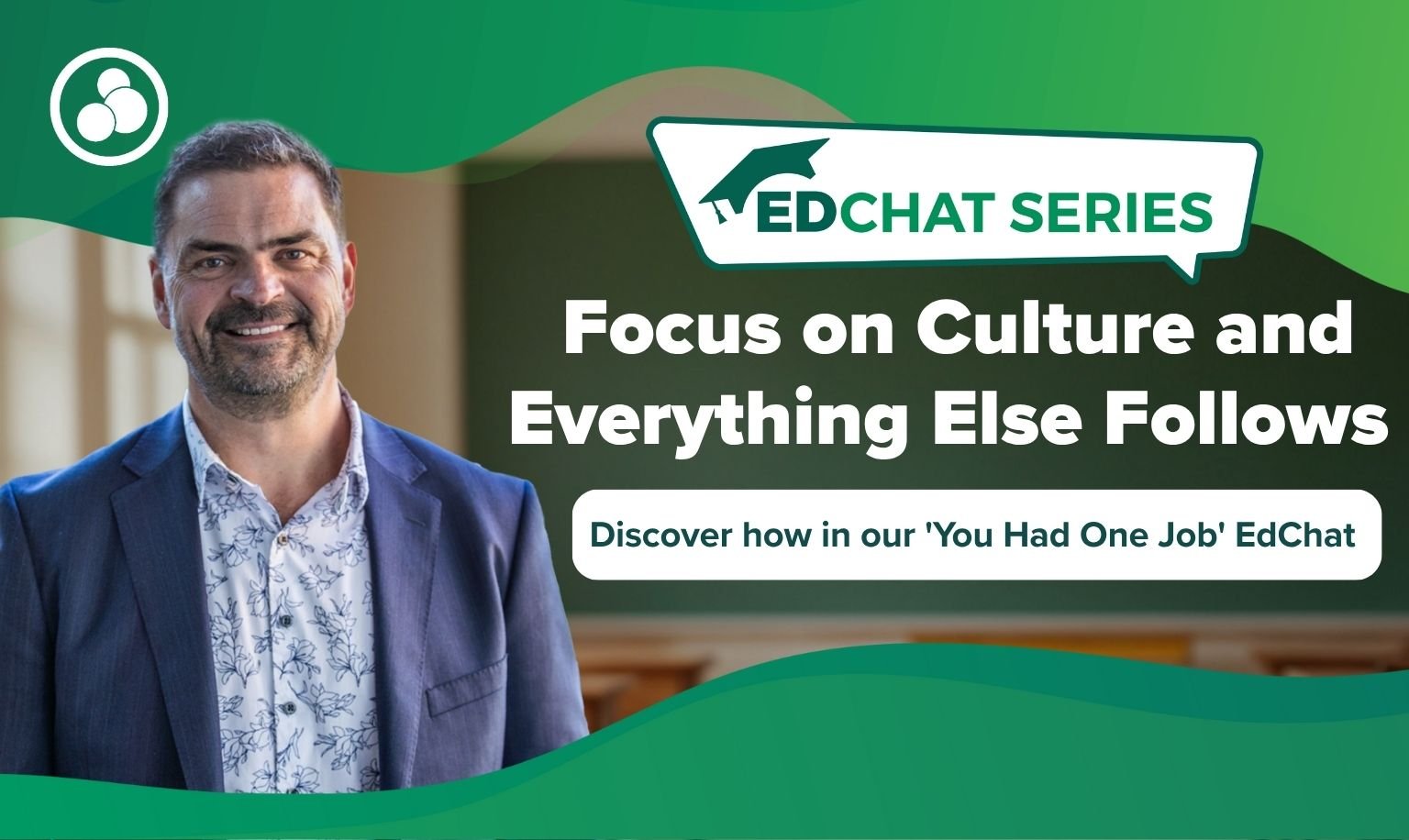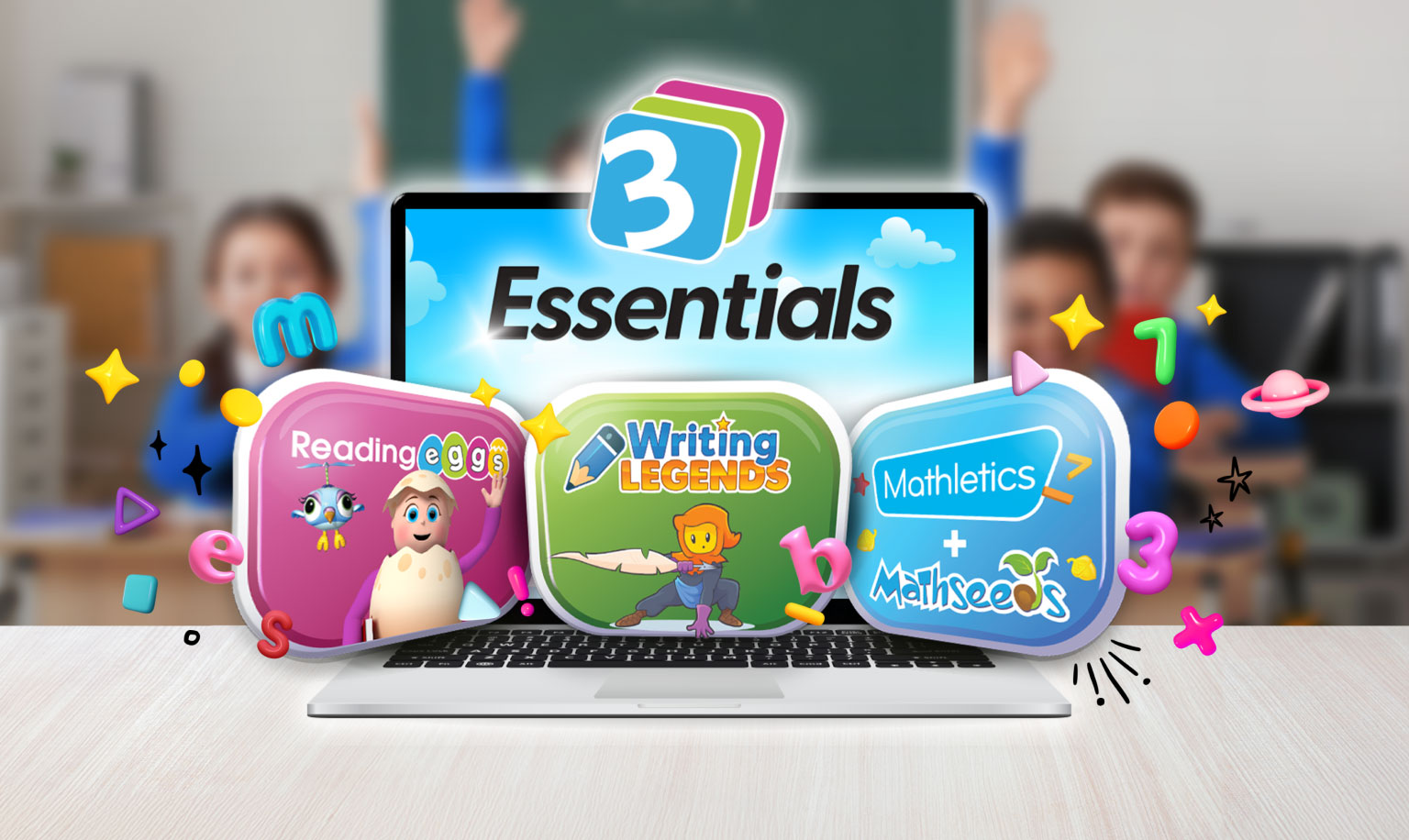
Adam Voigt’s message to school leaders was simple but powerful: stop trying to do everything.
In our recent EdChat session, ‘You Had One Job’, this school culture expert challenged hundreds of educators to refocus on what truly matters.
The one job that changes everything
Adam’s central message was clear: “Whether you’re a school leader or a classroom teacher, your most important job is to lead the culture.” When we get this right, as Adam emphasised, “everything follows.”
But what does this actually mean? Adam broke it down brilliantly: “Culture is just a collective noun for behaviours. There are behaviours we encourage, there are behaviours we tolerate.”
The key is moving behaviours from the ‘tolerate pile’ to the ‘encourage pile’ using strategies that actually work.
As Adam pointed out with characteristic wit, “Getting kids to make a poster about respect doesn’t make them more respectful. It makes them better at poster making.”
Traffic Lights vs Roundabouts: A paradigm shift
One of the session’s most powerful moments came when Adam introduced his traffic intersection metaphor.
He challenged us to think about whether we’re creating ‘Traffic Light’ schools or ‘Roundabout’ schools.
Traffic Light schools operate on authoritarian control – the authority does all the work, students just comply (or cheat). Roundabout schools embrace shared responsibility where students learn to navigate the system skilfully.
Adam backed up this metaphor with real data. When Indiana converted 265 traffic intersections from lights to roundabouts, they saw:
- 90% reduction in fatalities
- 70% reduction in collisions
- 50% increase in traffic flow.
The education parallel? As Adam explained, we need to “harness the energy of our young people and allow them to learn how to use the system rather than continually catch them doing the wrong thing.”
The P3P3F3 framework: Practical magic
Adam didn’t just share theory – he gave us tools we can use immediately. His P3P3F3 framework transforms how we handle student behaviour through three simple questions:
- Past (3 minutes): “What happened?” – Focus on engagement, not investigation.
- Present (3 minutes): “How did people feel?” – Build empathy and awareness.
- Future (3 minutes): “What will you do to fix this?” – Create ownership and action.
The goal? Get students thanked and congratulated for taking personal responsibility.
This creates a school culture where students self-report problems because they know they’ll be helped to resolve them, not punished.
Real results from real schools
The impact of these approaches is measurable. Schools implementing Adam’s strategies report reductions in suspensions and behaviour referrals.
Adam shared a powerful story about a student who couldn’t sleep until she confessed to graffiti – not from fear, but because “she was developing a conscience.”
This shift from external compliance to internal motivation represents the heart of culture change.
As Adam noted, we’re not trying to eliminate all challenging behaviours – even in healthy relationships, people occasionally annoy each other! Instead, we’re building systems that help young people learn from their mistakes.
Beyond the session: Your purpose renewed
Adam closed with a reminder that resonated deeply with attendees: “Education underpins our country’s economic and social prosperity.”
For educators feeling overwhelmed by endless responsibilities, this EdChat offered a path back to purpose.
The session wasn’t just professional development: it was a call to action. Adam reminded us that “good teaching is 90% theatre and 90% theft” – so steal these strategies and make them your own!
Ready to make your job simpler?
Through his company Real Schools, Adam has worked with over 300 schools and 12,000 teachers across Australia, proving these approaches work at scale. His message is clear – when you focus on culture first, everything else becomes easier. Watch his complete EdChat recording to see exactly how he does it.





